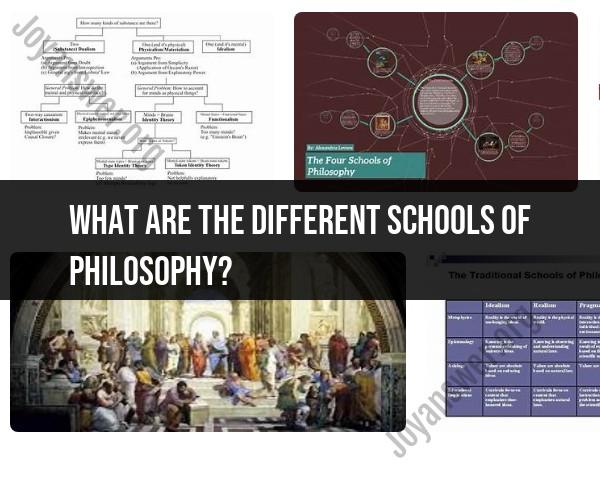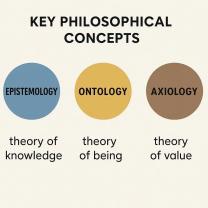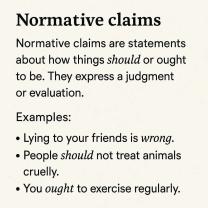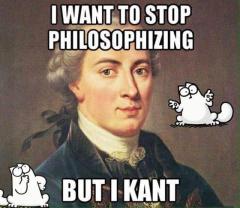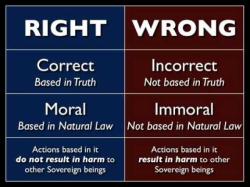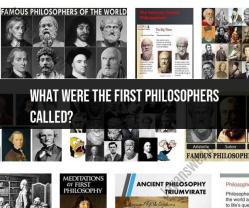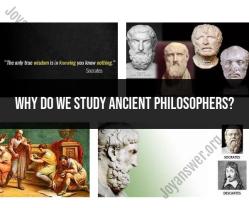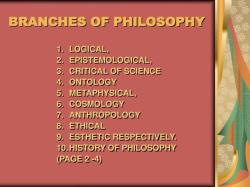What are the different schools of Philosophy?
Philosophy is a diverse field with various schools of thought or philosophical traditions, each offering distinct perspectives on fundamental questions about existence, knowledge, morality, and the nature of reality. Here are some of the different schools of philosophy:
Analytic Philosophy:
- Analytic philosophy emphasizes clarity of language and the analysis of concepts. It often involves logical reasoning and the examination of language to address philosophical questions. Analytic philosophy has been influential in the Anglo-American tradition.
Continental Philosophy:
- Continental philosophy emerged in continental Europe and includes diverse traditions such as phenomenology, existentialism, hermeneutics, and critical theory. It often focuses on subjective experience, cultural critique, and the interpretation of texts.
Phenomenology:
- Phenomenology is a philosophical approach that seeks to describe and analyze conscious experience without preconceived notions. It emphasizes the "phenomena" or appearances of things as they appear in consciousness.
Existentialism:
- Existentialism is a philosophical movement that explores the individual's existence and freedom. It emphasizes personal responsibility, choice, and the subjective experience of meaning and authenticity.
Pragmatism:
- Pragmatism is a philosophical tradition that focuses on the practical consequences of beliefs and actions. It emphasizes the practical and experiential aspects of philosophy and rejects purely theoretical or speculative approaches.
Idealism:
- Idealism posits that reality is fundamentally mental or immaterial. It holds that ideas or consciousness are primary, and the material world is a product of the mind.
Materialism:
- Materialism is the philosophical view that reality is ultimately composed of material or physical substances. It rejects the idea that mind or consciousness is separate from the physical world.
Empiricism:
- Empiricism emphasizes the role of experience and observation in the acquisition of knowledge. It holds that all knowledge is derived from sensory experience.
Rationalism:
- Rationalism asserts that reason and innate ideas are the primary sources of knowledge. It contrasts with empiricism by emphasizing the role of reason over sensory experience.
Skepticism:
- Skepticism is a philosophical position that questions or doubts the possibility of certain knowledge. It often involves an attitude of suspension of judgment.
Objectivism:
- Objectivism is a philosophical system developed by Ayn Rand, emphasizing individualism, reason, and the pursuit of self-interest. It has influenced libertarian thought.
Naturalism:
- Naturalism holds that the natural world is all that exists, and it rejects supernatural or metaphysical explanations. It is often associated with scientific approaches to understanding reality.
Deconstructionism:
- Deconstructionism is a postmodernist approach that seeks to analyze and question the assumptions and binary oppositions present in language and texts. It was influential in literary theory.
Logicism:
- Logicism is a school of thought that sees logic as fundamental to understanding and explaining the nature of reality. It often intersects with formal logic and mathematical philosophy.
These are just a few examples, and there are many more schools and traditions within philosophy, each contributing to the rich tapestry of philosophical thought. Philosophers often engage in interdisciplinary discussions, and individual philosophers may draw from multiple traditions in their work.
The world of philosophy boasts a rich tapestry of diverse schools of thought, each offering unique perspectives on fundamental questions about existence, knowledge, and morality. Let's unravel some of their key features:
1. Major Schools and Core Principles:
- Ancient Greek Philosophy:
- Pre-Socratics: Focused on understanding the nature of reality (e.g., Thales, Heraclitus, Parmenides).
- Socrates & Plato: Emphasized reason, dialogue, and the pursuit of virtue (e.g., Theory of Forms).
- Aristotle: Advocated for empirical observation and logical reasoning (e.g., emphasis on the golden mean).
- Medieval Philosophy:
- Scholasticism: Reconciling faith and reason, often within the framework of Christian theology (e.g., Thomas Aquinas).
- Modern Philosophy:
- Rationalism: Emphasized reason and logic as the foundation of knowledge (e.g., Descartes, Spinoza).
- Empiricism: Knowledge gained through experience and observation (e.g., Locke, Berkeley, Hume).
- Continental Philosophy: Diverse approaches focusing on language, subjectivity, and existence (e.g., Nietzsche, Sartre, Foucault).
- Contemporary Philosophy:
- Analytic Philosophy: Focuses on logic, language, and analysis of concepts (e.g., Wittgenstein, Quine).
- Feminist Philosophy: Challenges traditional philosophical frameworks from a gendered perspective.
- Environmental Philosophy: Explores ethical and social implications of our relationship with the environment.
2. Divergent Perspectives:
- Metaphysics: How do we understand the nature of reality? Materialism vs. idealism, skepticism vs. faith.
- Epistemology: How do we acquire knowledge? Reason vs. experience, intuition vs. objectivity.
- Ethics: What constitutes right and wrong? Utilitarianism vs. deontology, virtue ethics vs. consequentialism.
- Political Philosophy: How should societies be structured and governed? Individualism vs. collectivism, liberty vs. security.
3. Historical Influences:
- Ancient Greek thought influenced subsequent schools, paving the way for Western philosophical tradition.
- Medieval philosophy engaged in dialogue between faith and reason, shaping Christian theology.
- The Enlightenment championed reason and scientific progress, impacting modern philosophical movements.
- Social and political changes throughout history, like colonialism and globalization, spurred new philosophical inquiries.
4. Contemporary Thinkers:
- Noam Chomsky (analytic philosophy of language)
- Judith Butler (feminist philosophy, queer theory)
- Peter Singer (bioethics, environmental philosophy)
- Slavoj Zizek (continental philosophy, psychoanalysis)
- Martha Nussbaum (philosophy of emotions, global justice)
5. Choosing a Framework:
There's no right or wrong answer! Philosophy invites exploration and questioning. Consider:
- Personal interests: Are you drawn to abstract questions about reality or practical ethical dilemmas?
- Reading and exposure: Explore different schools and find thinkers who resonate with your curiosity.
- Critical thinking: Don't blindly accept any framework. Engage with arguments, ask questions, and refine your own beliefs.
Remember, philosophy is a journey, not a destination. Embrace the open dialogue, challenge your assumptions, and enjoy the intellectual adventure of navigating these diverse schools of thought.
